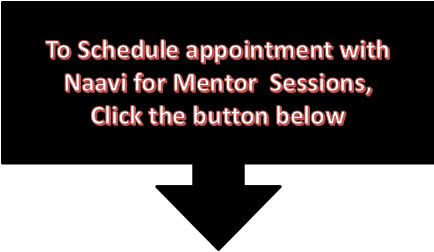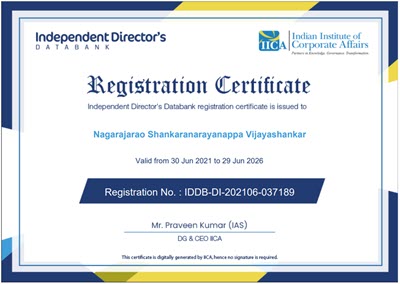Reserve Bank of India has released the list of 26 Banking license applicants who have sought licences under the new licenses to be released.
The list of aspirants is as follows.
1. Aditya Birla Nuvo Ltd., Mumbai.
2. Bajaj Finserv Ltd., Pune.
3. Bandhan Financial Services Pvt. Ltd., Kolkata.
4. Department of Posts, New Delhi.
5. Edelweiss Financial Services Limited, Mumbai.
6. IDFC Limited, Mumbai.
7. IFCI Limited, New Delhi.
8. Indiabulls Housing Finance Limited, New Delhi.
9. India Infoline Ltd., Mumbai.
10. INMACS Management Services Limited, Gurgaon.
11. Janalakshmi Financial Services Pvt. Ltd., Bangalore.
12. J M Financial Limited, Mumbai.
13. LIC Housing Finance Ltd., Mumbai.
14. L & T Finance Holdings Limited, Mumbai.
15. Magma Fincorp Limited, Kolkata.
16. Muthoot Finance Limited, Kochi.
17. Reliance Capital Limited, Mumbai.
18. Religare Enterprises Limited, New Delhi.
19. Shriram Capital Limited, Chennai.
20. Smart Global Ventures Pvt. Ltd., Noida.
21. SREI Infrastructure Finance Limited, Kolkata.
22. Suryamani Financing Company Limited, Kolkata.
23. TATA Sons Limited, Mumbai.
24. Tourism Finance Corporation of India Limited, New Delhi.
25. UAE Exchange & Financial Services Ltd., Kochi.
26. Value Industries Limited, Aurangabad.
RBI appears to be indicating that only 5 or 6 licenses are likely to be granted. The list contains several large corporates as well as Government owned and public sector organizations. It would therefore be a tough time for RBI to prune the list of 26 to around 6.
From the days of Bank nationalization in 1969 and subsequent partial de-regulation, Indian Banking industry has undergone a significant change of character and the new licenses are likely to be another mile stone in the history of Banking in India. The earlier Banks were born in the era where human interface was predominant and “Service” was a virtue. But the present environment is different. We are today living in a digital world where Bankers would not like to see and interact with its customers face to face and rather prefer to deal with them as “Numbers” or “Log in IDs”. Also “Service” is only a “Tool to make profit”. The new licensees will be born in an era where “Profit” is likely to be the only goal. This could seriously destabilize the Banking system as we know in India.
Naavi.org has time and again emphasized that RBI should not allow distortion of “Banking” as a concept of business developed over time with a focus on “Channelizing public savings fro productive use” and use “E-Money Shop” license as a separate category to feed the desires of the modern day “profit at any cost” Bankers. It is such a “Profit First Customer Next” approach which has made current Banking system extremely unsafe for common Bank customers and forced Naavi to take up a crusade for “Safe E Banking”
At a time when the Indian Banking system is reeling under the pressures of an in-secure technology system entry of several new entities will pose further risks to the Indian Banking consumers. Unless RBI ensures that new licenses are issued strictly on “Public Welfare Criteria”, Indian Banking is likely to permanently lose its character as a “Preferred Destination of Small Savings”.
The approach of the new generation banks have been to cater to the “Elite” category of customers and neglect the needs of the common man. Cost of Banking has been n the increase despite large scale automation. There is widespread “Money Laundering” and “Fake Currency Exchange” occurring within the banking system. The “Commercial” nature of the Banks have made them “Greedy” Banks and the customer has been bullied into accepting services at a cost and security level that are unreasonable from the user’s perspective. “Service to community” is no longer an objective of Banking.
In fact going by the arguments I have personally heard in many of the Bank fraud cases, most Banks consider themselves as “Money Shops” and they donot even appreciate the meaning of “Banking” as an institution to channelize public savings to productive areas.
In recent days, RBI is losing control of the industry and has become a pawn in the hands of influential commercial Bankers. The fact that recently most Banks have reverted to levying extra charges for SMS alerts of transactions, use of Cheques, Drawing of Cash from Banks, and also charge usurious penalties for unintended delays in loan or credit card repayments, use draconian methods of recovery of loans, associate themselves with property mafias and underground criminals in black money transactions and property seizures etc makes one wonder if the Indian Banking system has become a huge extortion racket where depositors are driven out of the system to other more risky investment channels.
The list of aspirants contain some names which are bound to evoke a fear that managements which are already thriving in black money wealth are interested in Banking license so as to convert their own black money into Bank deposits rather than mobilize savings from the public.
RBI should therefore consider “Ability to mobilize savings from grass roots” as the basic criteria for selection.
Secondly, large corporates already have many banks wedded to them and hence another criteria for selection should be “Ability and Orientation” to engage in “Retail Productive Banking”. Retail Banking does not only mean financing Luxury Cars and real estate but financing small trade and entrepreneurial activities.
Above all, “Commitment to Serve” as embodied by the Gandhian principles encapsulated in the following statements is to be considered as the key determinant for selecting the successful licensees.
“A customer is the most important visitor on our premises.
He is not dependent on us. We are dependent on him.
He is not an interruption in our work. He is the purpose of it.
He is not an outsider in our business. He is part of it.
We are not doing him a favor by serving him. He is doing us a favor by giving us an opportunity to do
……………………………………………………………………..Mohandas Karamchand Gandhi
I wish RBI adopts the right approach to new Bank licensing and uses this opportunity to correct some of the imbalances that have crept into the Banking system in recent days and ensures that “Safe and economic Banking for the Common man” is the key goal of the new Bankers. There is need to look for managements which are “People Oriented” rather than focusing only on “Profit at any cost”.
Naavi










